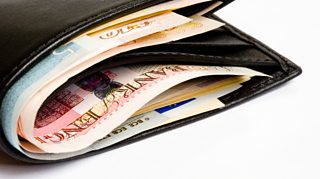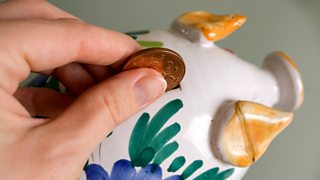How to spend your money to make you happier
By Claudia Hammond
If you are lucky enough to have any money to spare, whether it’s a little or a lot, you have choices about how to spend it. Psychological research shows that those decisions can have an impact on your well-being. So if you were to let the evidence guide your spending, what should you do?
1. Buy experiences rather than material goods
You might think that the problem with spending on experiences is that they are over in an afternoon, whereas a shiny new pair of shoes can last you years. However, when researchers from the University of Texas instructed people to spend a number of dollars a week either on experiences or on material goods, the first group felt happier afterwards.
The reason is that the shoes remain the same (apart from becoming less shiny), so we stop noticing them, but experiences bring more variety. They also bring us extra pleasure in a form of anticipation long before they actually take place. Psychologists from Cornell University found that people didn’t get joy from the anticipation of material purchases in the same way they did from experiences. And of course, a day out leaves you with happy memories too.

2. But it’s OK to buy things if they can lead to pleasurable experiences
So if buying a bike allows you to explore country lanes that you’ve never seen before or to visit friends who are hard to reach, then that purchase could make you happier.
3. Spend money on other people
When the US psychologist Elizabeth Dunn asked her students to predict whether people would get more joy from receiving a free gift of money to spend on themselves or to spend on someone else, they said people would prefer to spend it on themselves. Who doesn’t like getting a present after all? But when she tried it out for real on the streets of Vancouver, stopping passers-by and giving them an envelope containing $20 in cash, those who were instructed to spend it on someone else or give it to charity felt happier at the end of the day than the people who told to buy gifts for themselves.
Elizabeth Dunn also found that, regardless of income, people who spend the highest proportion of their salary on other people are, on average, happier.

4. Pay in advance
It’s not always possible, but if you can pay in advance of an experience such as a holiday, it divorces the pain of paying from the joy of possession or doing. By the time the holiday comes round it feels almost as though it was free, leaving you to concentrate on the pleasure without it feeling expensive.
Conversely, if you buy something on credit, you have the pain of paying when the pleasure has long gone.
5. Buy yourself small treats
When people are feeling miserable, they are more likely to buy themselves a gift. In a study conducted in a US shopping mall, researchers found that people often spend money strategically to improve their mood.
They know what they’re doing. Small treats won’t make a difference in the long-term, but can cheer you up temporarily. Lots of small treats will make you happier (and cost less) than one big one.
6. If you play the lottery, don’t choose the same numbers every week
We all hate making decisions we regret and this regret aversion means we fear the discovery that the week we didn’t buy a ticket with our usual number, we could have become a millionaire. So don’t choose the same lottery numbers every week or you will never be able to stop playing.

7. Rent happiness
The psychologist Sonya Lyubomirsky has spent her career studying happiness. She recommends “renting happiness”.
Instead of splashing out on a better car, rent a fancy sports car for a weekend away. It sounds extravagant, but is much cheaper than buying a new car, and gives you a memorable experience which won’t wear off because you don’t become accustomed to it.
8. If you are going for a day out, don’t calculate how much you could have earned if you had worked instead
Time is of course money. If you’re paid by the hour or you’re self-employed, it’s tempting to work out how much you could have made if you weren’t going out for the day. But that can reduce the pleasure of the experience.
In experiments where people were asked to calculate their hourly rate, it even spoilt their enjoyment of listening to music a few moments later! So if you’ve decided to take a day off to spend with friends, don’t think about what you could have earned in those hours.
9. Remember that not spending can be satisfying too
If you can’t afford to spend or want to save for the future instead, then Sonya Lyubomirsky’s research throws up another suggestion. She is convinced that thrift is a forgotten virtue.
Vintage shops might be in fashion, but many of us still want to buy new things. Sonya suggests paying more attention to the things we own, actively thinking about the benefits and pleasures they’ve brought us, so that our joy in them doesn’t wear off. Or you can recycle the initial pleasure your old possessions used to hold for you, by bringing them back into service.












